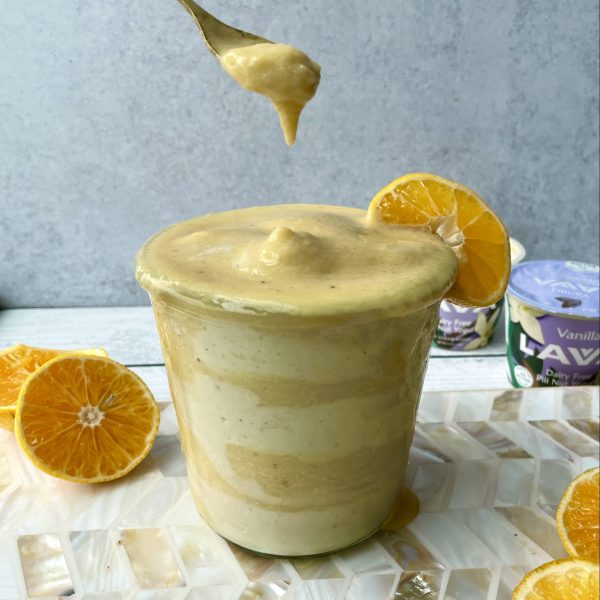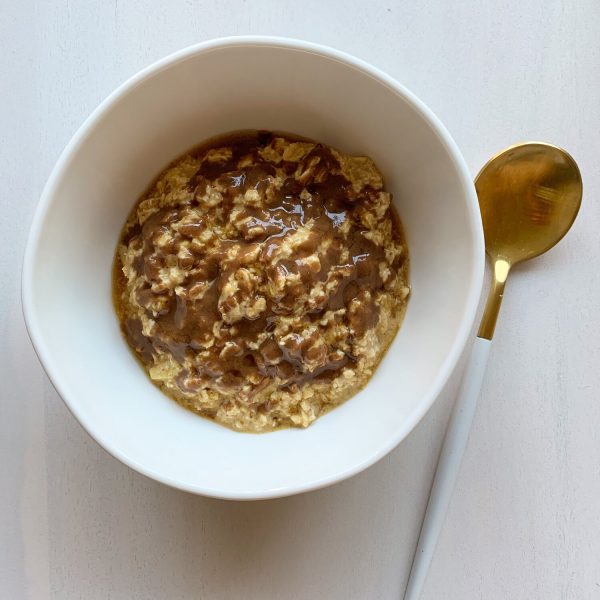While no single food ensures a strong immune system, the foods we choose to put on our plate can help or hurt our chances of getting sick. Chronic consumption of ultra-processed foods may contribute to the kind of systemic inflammation that compromises our body’s immune responses. Antioxidant-rich eats, on the other hand, can minimize cell damage and stoke our innate defenses so we’re better prepared to take on pathogens.
Intrigued? Lavva’s contributing registered dietitian, Anthea Levi, MS, RD, highlights five key nutrients to eat for a strong immune system.
Probiotics
Consider probiotics your BFFs. The good-for-you bacteria support a healthy gut microbiome, which is pretty critical considering some 70% of immune cells live in the GI tract, per UCLA Health.
Probiotics support immune function in countless ways. Here are just a few:
- They crowd out and prevent the proliferation of pathogenic (translation: illness-inducing) bacteria.
- They regulate the activity of key immune cells like macrophages and T and B cells.
- They keep the lining of the intestine in top shape. Maintaining this barrier is important for preventing the passage of bacteria into the rest of the body, which can result in inflammation as well as infection.
Lucky for you, each cup of Lavva yogurt serves up 50 billion probiotics. You’re welcome.
Vitamin C
A potent antioxidant, vitamin C reduces oxidative stress in the body, helping to reduce the tissue damage and inflammation that’s linked to conditions like cancer, heart disease, and natural aging.
Good to know: citrus isn’t the only source of vitamin C. The water-soluble nutrient is abundant in the diet. Find vitamin C in your favorite fruits and veggies, like strawberries, kiwi, bell peppers, tomatoes, Brussels sprouts, and potatoes.
Protein
Did you know that an adequate protein intake is necessary for a robust immune system? Insufficient amounts of key amino acids like glutamine can mess with the growth and function of some of our most important immune cells.
Hot tip: the baseline recommendation is to eat about .36 grams of protein per pound of bodyweight on a daily basis. That comes out to about 47 grams of protein for a 130-pound woman. Of course, this guideline is subject to change based on a number of factors, like one’s activity levels, health goals, or stage of life.
Zinc
A major player in DNA synthesis and cell division, zinc is an immune system must. In fact, one 2017 meta-analysis reported that consuming a zinc-rich lozenge at the onset of symptoms could potentially shorten the duration of a cold by 33%. Yes, please!
Get zinc on your plate by opting for protein-rich foods like oysters, beef, and crab. Plant-based alternatives like cashews, pumpkin seeds, and chickpeas can provide small amounts of zinc as well.
Vitamin D
Ever noticed how cold and flu season is the exact same time of year that most of us hit rock bottom with our vitamin D levels? That might not be a coincidence. According to Harvard’s T.H. Chan School of Public Health, vitamin D helps drive down inflammation in the body and increases our production of pathogen-fighting proteins. On the flip side, low vitamin D levels are associated with a greater risk of respiratory tract infections (hi, COVID).
Naturally-occurring vitamin D is hard to come by in the diet, so it’s helpful to be intentional about your intake. If you eat animal products, egg yolks and fatty fish like salmon are among the best sources of vitamin D. Commonly fortified options include products like some milks, yogurts and breakfast cereals.
In addition to consuming dietary vitamin D, make sure you get regular exposure to sunlight to support your immune system. The body can convert a hormone in our skin to active vitamin D when exposed (in moderation!) to UVB rays.
And if your labs show low vitamin D levels, starting on a supplement is always a good idea. Talk to a registered dietitian or healthcare provider to discuss the ideal form and dosage for you.






